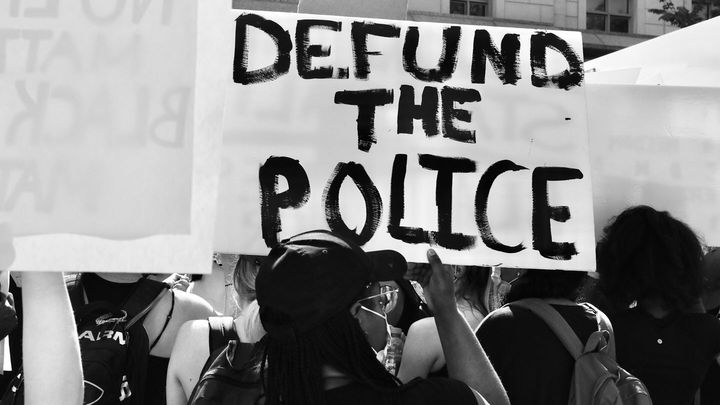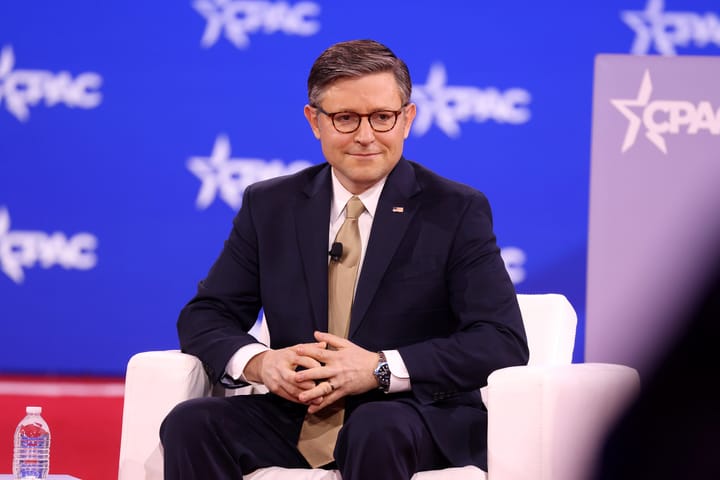Throughout the country, activists are working to defund their local police departments in the wake of mass protests following the police killings of George Floyd, Breonna Taylor, and countless other Black individuals over the years.
Activists and advocates for reallocating funding away from traditional police departments to social services and community programs face challenges in their efforts, even while many politicians and city council members claim to sympathize with their causes. Police lobbying groups have given more than $15 million to state and local officials since 2015, giving them influence over the people who approve police budgets. The municipal budget process typically takes months of negotiations, starting early in the calendar year.
But in several major American cities, city councils were more responsive to the goals of protesters and community groups, creating traction to move forward with measures that would make significant cuts to police budgets. One thing these cities have in common—including Seattle, New York, and, to a lesser extent, Los Angeles—is that they are among a small group of major American cities that have public campaign financing programs, which help outsider candidates successfully run for office and maintain their independence from interests who oppose defunding police departments, like law enforcement unions and lobbying groups, as well as real estate developers.
In Seattle, a veto-proof majority of city council members said earlier this month that they were committed to cutting the mayor’s budget for the city’s police department by 50%. “Unlike past practices, we are not going to nibble around the edges of the mayor’s proposed budget,” said Seattle City Council Member Teresa Mosqueda. “This year, we are not going to pass the mayor’s 2020 revised budget until we as a council have a chance to have a full, thorough, and transparent deep dive into the Seattle Police Department’s funding.”
Seattle has a public campaign financing system that uses “democracy vouchers”—four vouchers of $25—that are provided to all Seattle voters starting in 2017 to donate to candidates of their choosing. In order to accept the vouchers, candidates have to abide by lower campaign contribution limits and caps on how much their campaign can spend. Eight of the nine city council members made use of the system during their most recent elections. The one candidate who did not, Kshama Sawant, has pledged to support the defunding effort.
Seattle’s Democracy Voucher Program was designed to increase participation in the funding of campaigns, giving a more diverse group of voters the ability to influence who can successfully run for office. According to a study of the vouchers’ first use in the city’s 2017 elections by Jen Heerwig, assistant professor of sociology at SUNY-Stony Brook, the program showed successful results in diversifying who funds local elections, doubling the overall donor participation rate and containing a higher share of people of color compared to cash donors.
Opposing the City Council members on defunding the police is Seattle Mayor Jenny Durkan, a Democrat, who did not participate in the democracy voucher program (the ballot measure establishing the program excluded mayoral candidates until 2021). Durkan funded her 2017 campaign with hundreds of large donations from major corporations, corporate lawyers, and real estate associations. Durkan has called the proposal “reckless” and said she would veto it. Instead, Durkan has proposed cutting the police budget by about 14% below 2020 levels.
Siding with Durkan on the matter is the Downtown Seattle Association, a coalition of corporations and nonprofits that lobbies the government and says it works to keep downtown Seattle economically competitive and to “ensure a safe, clean and inviting urban experience for workers, residents and visitors.”
“Calls by a majority of the City Council to immediately reduce our police spending by 50% without a plan or a process is not leadership or governance; it’s a recipe for chaos in our communities,” the coalition said in a statement. “Mayor Durkan and Chief Best have outlined a reasonable and responsible timeline and action plan to examine the roles and responsibilities of SPD. “
In her 2017 campaign, Durkan took several $500 contributions from board members of the Downtown Seattle Association, according to Sludge’s review of campaign finance records, including Mark Barbieri, vice president of Washington Holdings; Maurice Callahan, CEO of Urban Renaissance; and John Schoettler, vice president of global real estate and facilities at Amazon. Several other business and district council leaders whose organizations signed a July 15 group letter opposing the Council’s proposal also made large donations to Durkan in 2017, Sludge found.
Seattle is not the only city with public financing programs that is moving forward with large cuts to police budgets. In New York, the City Council announced an agreement on the 2021 budget that would cut and transfer $837 million from the New York Police Department, an approximately 15% reduction of its $5.6 billion budget this fiscal year.
“To the thousands of New Yorkers who so admirably fought for budget justice over the past several weeks: we heard you and we stand with you,” Council Member Daniel Dromm said in a statement. “We recognize that the City must move away from failed racist policing policies of the past.”
New York City has a public financing system that currently provides candidates with public matching funds at a 8-to-1 ratio for small-dollar donations they raise from individuals in New York City. In order to participate, candidates have to abide by spending limits. Of the Council’s 51 current members, only four have not participated in the matching funds program, according to information provided to Sludge by the New York City Campaign Finance Board.
Dromm, the chair of the Finance Committee, which oversees the budget process, told the Brennan Center for Justice in 2010 how the public matching funds system encouraged him to hold small fundraisers rather than cultivating large contributors when he first ran for his City Council seat.
“I had events at local restaurants, house parties, and a fundraiser during Queens pride day. I had $10 meet and greets,” Dromm told the Brennan Center. “How I raised money—from small donors, at events that reached out to the different communities—contributed to the sense of inclusion that translated into other kinds of support.”
In Los Angeles, another city with a longstanding public matching funds system that was strengthened in 2019, the City Council passed a reduction in the police budget of $150 million on July 1, a small reduction to the city police department’s budget of $1.8 billion. Black Lives Matter-LA co-founder Melina Abdullah called the $150 million cut a “step forward” but added that it was “mostly symbolism” and “an attempt to quell protest — which it won’t.”
The public financing system in Los Angeles has not been widely used, with just 33% of candidates opting to use it according to a 2014 report from Demos.
In Minneapolis, the city where George Floyd was killed by police officer Derek Chauvin, the City Council this week voted to move $1.1 million from the police department’s roughly $190 million budget to the Health Department to fund civilian violence interrupters who will mediate conflicts rather than armed police. In June, the Council voted to advance a ballot measure to the November ballot that would amend the City Charter to create a new Department of Community Safety and Violence Prevention and eliminate the Police Department as a chartered department. Minneapolis does not have a public campaign financing system for city council elections.
Nationally, activists are calling on politicians across the country to stop taking money from police interests. The “No Cop Money” pledge calls on candidates to commit to reject funding from “unions, associations and political action committees (PACs) representing or affiliated with current or retired police, police chiefs, sheriffs, state troopers, corrections officers on the regional, state, and local level.
UPDATE: This post has been updated to incorporate public matching fund program details provided by the New York City Campaign Finance Board.
Read more from Sludge:
Police Foundations Scrub Corporate Partners and Board Members From Their Websites
Poorer Cities Spend More of Budget on Police, Even Where Crime Is Lower
Law Enforcement PACs Give Millions to the Politicians Who Set Their Budgets
Grassroots NY Challengers Take on the Pandemic and the Big Money Machine
Verizon and AT&T Partner With Pro-Police Militarization Lobbying Group



